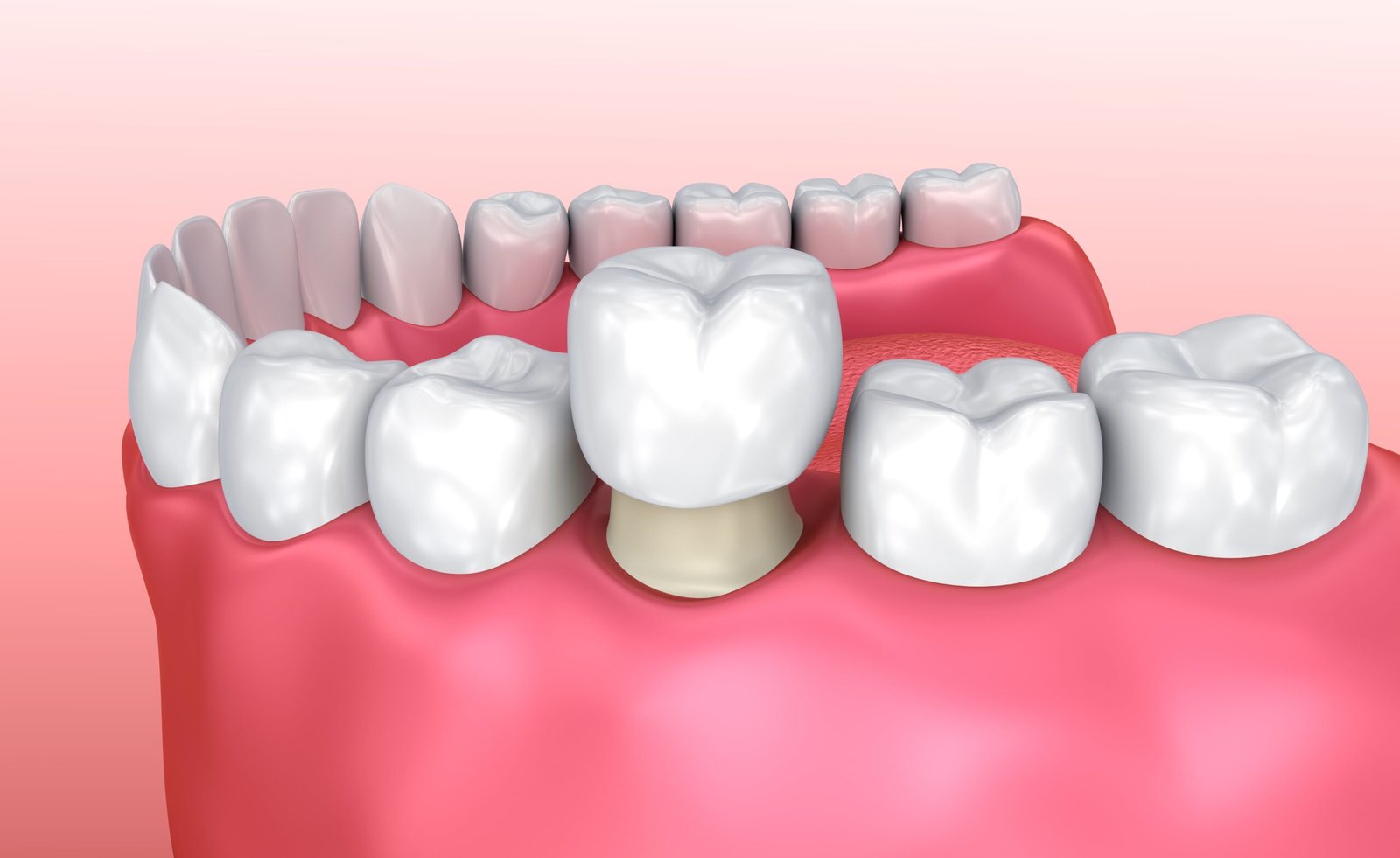Dental crowns are one of the most effective ways to restore a tooth that has been weakened, damaged, or cosmetically compromised. Whether due to decay, trauma, or wear, a crown can provide long-lasting protection while also enhancing the tooth’s appearance.
What Is a Dental Crown?
A dental crown is a custom-made cap that covers the entire visible portion of a tooth. It is designed to restore the tooth’s original shape, size, strength, and function. Crowns are typically recommended when a filling is not sufficient to repair the tooth, or after root canal treatment.
Crowns can be made from various materials, including:
- Porcelain or ceramic (for a natural, tooth-coloured finish)
- Metal alloys (for high strength in molars)
- Porcelain-fused-to-metal (PFM) (combines strength with aesthetics)
- Zirconia (known for durability and lifelike appearance)
When Is a Dental Crown Needed?
A dental crown may be recommended in the following situations:
- To protect a weak tooth from breaking or to hold together parts of a cracked tooth
- To restore a broken or severely worn tooth
- To cover and support a tooth with a large filling when there isn’t much tooth left
- To cover a tooth after root canal treatment
- To improve the appearance of a discoloured or misshapen tooth
- To cover a dental implant
The Dental Crown Procedure
Getting a crown usually requires two appointments:
1. Initial Visit – Tooth Preparation
- The dentist will examine the tooth, take X-rays, and shape it to fit the crown.
- Impressions are taken and sent to a dental laboratory for custom fabrication.
- A temporary crown is placed while your permanent crown is being made.
2. Second Visit – Crown Placement
- The temporary crown is removed, and the permanent crown is checked for fit and colour.
- Once approved, the crown is permanently bonded to the tooth using dental cement.
How Long Do Dental Crowns Last?
With good oral hygiene and regular check-ups, dental crowns can last 10 to 15 years or longer. Factors that affect longevity include the material used, the location of the crown, and habits like teeth grinding or nail-biting.
Caring for Your Dental Crown
- Brush and floss regularly, just like natural teeth
- Avoid chewing on hard foods or objects
- Attend regular dental check-ups and hygiene appointments
- Consider a night guard if you grind your teeth
Are Crowns Covered by the NHS?
In the UK, NHS dental crowns are available but typically made from less aesthetic materials like metal or metal-fused porcelain, especially for back teeth. Private dental crowns, on the other hand, offer more choices in terms of material, appearance, and turnaround time.
Final Thoughts
Dental crowns are a reliable, long-term solution for restoring both function and aesthetics to damaged teeth. If you’re experiencing pain, sensitivity, or have a tooth that doesn’t look or feel right, a dental crown might be the ideal treatment.
At Ashtead Dental, we offer high-quality dental crowns using modern materials and techniques tailored to your needs. Book a consultation today to explore your options and protect your smile for years to come.









